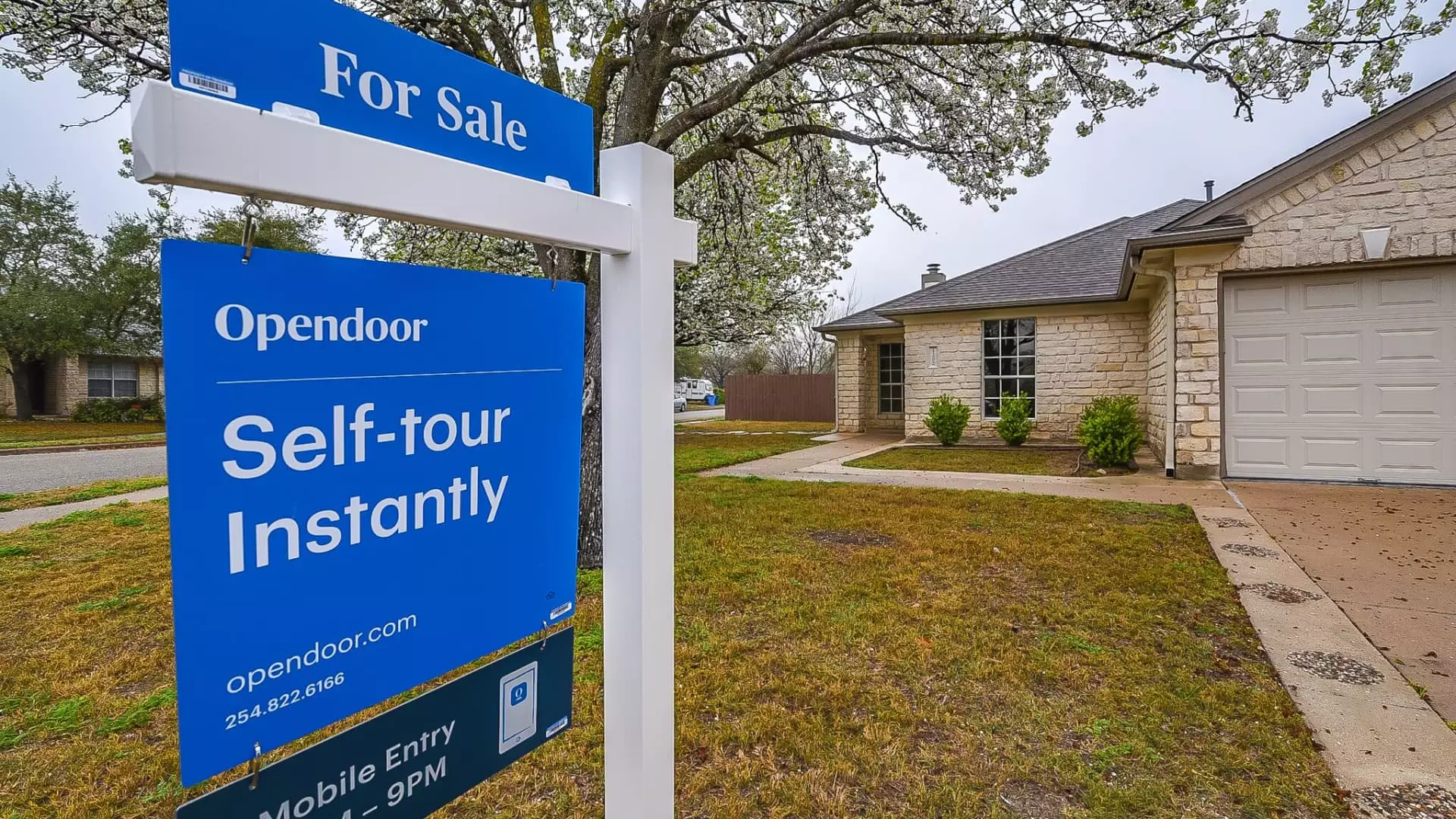Opendoor’s recent rally has been nothing short of astonishing—shares skyrocketed nearly fivefold since July, capturing investor enthusiasm that at first glance appears unjustified. Yet, beneath this gleaming surface lies a fragile foundation built on speculation rather than substance. The company’s sudden resurgence, driven by a handful of hedge fund endorsements and fleeting investor optimism, masks critical issues that threaten its long-term viability. It is a classic case of market exuberance overpowering fundamentals, and those who buy into this hype do so at their peril.
The stark truth is that Opendoor’s core business remains riddled with systemic challenges. The company’s reliance on “iBuying”—a model that hinges on quick turnaround property flips—is increasingly vulnerable in a rising interest rate environment that caps demand from homebuyers. Despite a modest revenue bump last quarter, it is clear that this pickup is temporary at best, with projections for the third quarter suggesting an enormous decline in both revenue and home acquisitions. The recent rally seems more like an overexcited wave of enthusiasm than a reflection of true company strength.
The Fallacy of the Turnaround Narrative
Leadership’s optimistic commentary about the company’s strategic shifts and improved margins cannot mask the reality: Opendoor’s financial health remains precarious. Revenue has plummeted from a peak of over $15 billion in 2022 to just a fraction of that now, and losses—though narrowed—are still substantial. The company’s decision to pivot toward a less capital-intensive referral model underscores its recognition that its traditional business model is no longer sustainable. However, this transition is fraught with risks; shifting business strategies during a downturn rarely produces immediate salvation. It takes more than vague promises of “the most important strategic shift in our history” to reassure skeptical investors.
Adding to the skepticism, the company’s future performance hinges on a fragile hope: that a return to revenue growth and market share expansion will re-rate its valuation to reasonable levels. Yet, the current environment offers scant evidence of such a turnaround. The housing market remains sluggish, suppressed by persistent mortgage rates and declining buyer demand. No amount of corporate lip service about overcoming these headwinds can conceal the fact that Opendoor’s future is far from assured; it’s hanging onto a thin thread of speculation dressed up as optimism.
Market Hype versus Genuine Value
The recent escalation in Opendoor’s stock price raises profound questions about investor participation in speculative bubbles. Hedge fund manager Eric Jackson’s endorsement, predicting a possible surge to $82 per share, appears detached from the company’s actual financial progress. His bullish stance rests largely on hope—hope that revenue will rebound and that market sentiment will eventually assign a sensible valuation to the company’s assets. But such lofty predictions ignore the fundamental risks of an industry facing structural headwinds.
Despite CEO Carrie Wheeler’s attempts to paint a picture of strategic evolution, her focus on expanding into less capital-intensive referral services reads more like an attempt to placate anxious shareholders than a vision rooted in operational realities. This “strategic shift” does not erase the fact that Opendoor’s core model is under siege. The record-high inventory levels, declining transaction volumes, and shrinking home acquisitions highlight an industry in crisis—not a nascent recovery.
The fervent enthusiasm in the markets seems to be a cursory response to a narrow window of positive news, sponsored by a narrative of rebirth and resilience. Yet, this enthusiasm belies the underlying vulnerabilities: a business still struggling with profitability, heavily dependent on a housing market that remains negatively impacted by macroeconomic trends. As earnings reports continue to fall short of expectations, the hope that Opendoor can turn the tide appears increasingly naive.
The Illusory Optimism of a Fragile Market
In the final analysis, the recent stock rally appears more like a heady illusion than a sign of stable or sustainable growth. While it is tempting to see this as a sign of a new dawn for Opendoor, critical analysis reveals a company still swimming against a relentless tide of economic and industry-specific challenges. The false hope fostered by opportunistic investors and bullish insiders risks leading many into a pit of disappointment.
The predicament of Opendoor exemplifies a broader pattern: markets often chase after narratives rather than realities. Investors must remain vigilant, recognizing that beneath the surface of soaring share prices, there is often a rocky road ahead. Companies like Opendoor, caught in the whirlwind of speculation, serve as stark reminders that not all rebounds are genuine. Sometimes, the most optimistic stories are the ones most deserving of skepticism.

